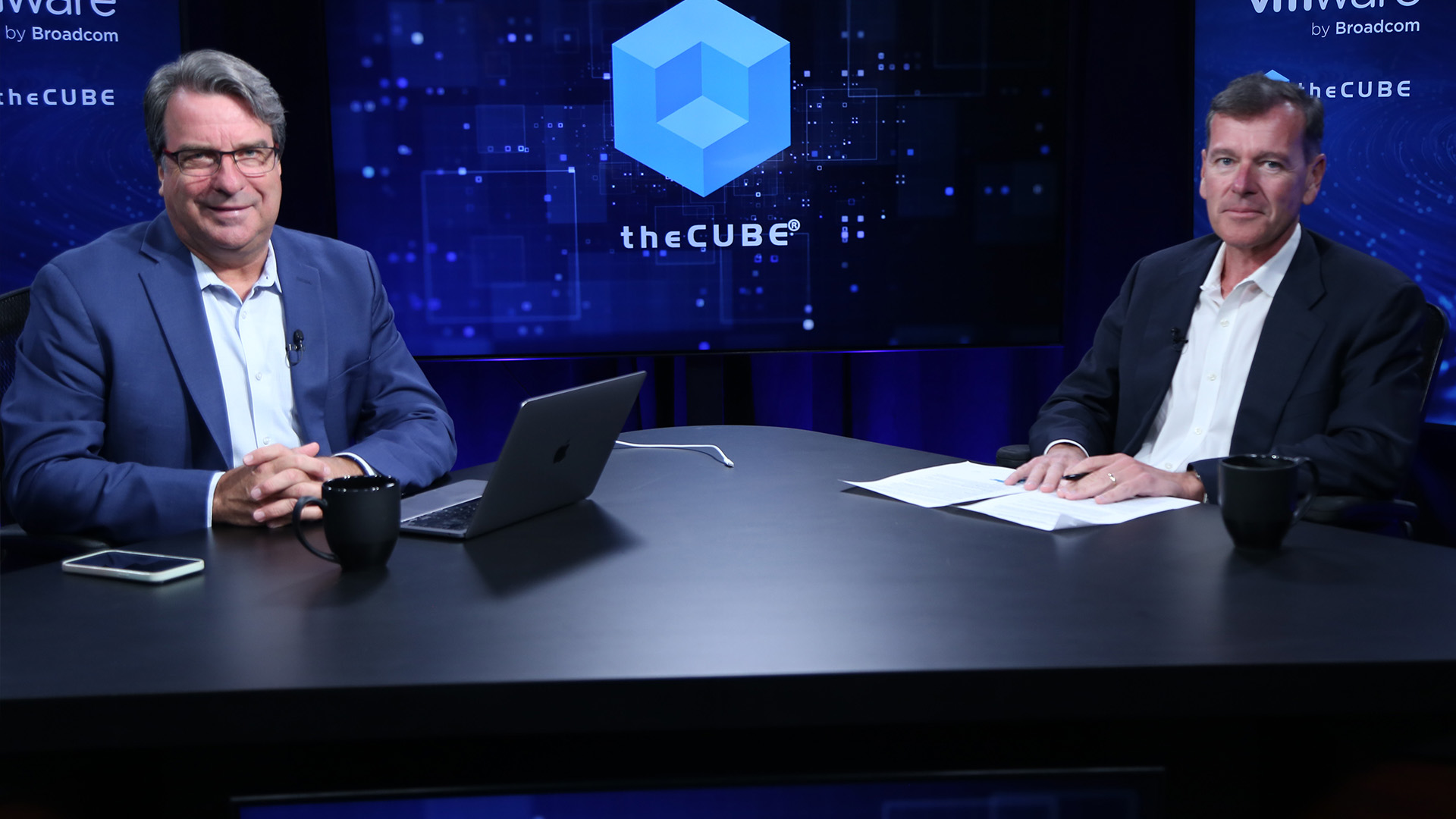 CLOUD
CLOUD
 CLOUD
CLOUD
 CLOUD
CLOUD
With the launch of VMware Cloud Foundation 9, Broadcom Inc. is signaling a bold step into the future of hybrid cloud infrastructure. Positioned at the intersection of AI, cyber resilience and operational efficiency, VCF 9 represents a strategic reset poised to redefine how enterprises manage cloud and data workloads at scale.
As the post-VMware-acquisition timeline unfolds, how does this update play into Broadcom’s larger vision for enterprise cloud computing, specifically with AI in the mix?
“I think the first question was around whether they’re investing — yes, clearly they are,” said Christophe Bertrand (pictured, right), principal analyst at theCUBE Research. “The other point is, I look at the package and what they’re trying to do — it’s multipronged. We’re in the era now where sovereignty and AI are going to be key … and one of the prerequisites is to have infrastructure that can scale, number one. Infrastructure that is super secure, cyber resilient, number two. And, of course, there’s a whole data component to AI, but if we just focus on infrastructure for a second, you have to simplify operational efficiencies.”
Bertrand was joined by fellow analyst John Furrier for an analyst discussion at the “Broadcom Delivers the Modern Private Cloud” event, during an exclusive broadcast on theCUBE, SiliconANGLE Media’s livestreaming studio. They dissected the VCF 9 launch and unpacked what it means for customers, infrastructure and the broader market.
During the event, two key themes emerged as crucial enterprise pain points: data sovereignty and AI scalability. But sovereign cloud isn’t just about where data resides — it’s about governance, compliance and control, according to Bertrand. With increasing demand for localized data handling and regulatory compliance, VMware’s ability to offer localized, cloud-like experiences is a game-changer. Coupled with AI momentum, VCF is positioned to offer a cloud infrastructure capable of handling enterprise-grade AI and machine learning workloads, without relying on public cloud environments.
“You have to be able to empower the organization to fully control deployments and costs with no surprises,” Bertrand said. “It has to be hybrid, multi-cloud, flexible, etc. There are so many dimensions to it. I think this platform delivers on it through the partnerships — like the [Nvidia Corp.] partnership, for example — but also through some innovations in existing components to make the product scalable and extremely powerful.”
Additionally, private cloud via VCF sidesteps the “Amazon tax” faced by SaaS companies using hyperscaler infrastructure, Furrier added. Enterprises keep their costs in check while gaining a cloud-native experience.
“If you’re a SaaS vendor, like Snowflake [Inc.], you pay Amazon because you’re using Amazon,” he said. “But a lot of data centers on-premises will want to use a cloud, like VCF, and they don’t have to pay the tax because it’s their infrastructure — they’ve got to buy it. So, one, VMware gets that cash. And, two, the AI wave gives them a big lift.”
Cybersecurity is no longer a bolt-on — it’s foundational. AI-fueled cyberattacks are a top concern for enterprises over the next 12 to 18 months, according to Bertrand. In response, VCF 9 integrates cyber resilience by design, including VMware’s live recovery tools, microsegmentation and clean room capabilities.
Here’s the complete video interview, part of SiliconANGLE’s and theCUBE’s coverage of the “Broadcom Delivers the Modern Private Cloud” event:
Support our mission to keep content open and free by engaging with theCUBE community. Join theCUBE’s Alumni Trust Network, where technology leaders connect, share intelligence and create opportunities.
Founded by tech visionaries John Furrier and Dave Vellante, SiliconANGLE Media has built a dynamic ecosystem of industry-leading digital media brands that reach 15+ million elite tech professionals. Our new proprietary theCUBE AI Video Cloud is breaking ground in audience interaction, leveraging theCUBEai.com neural network to help technology companies make data-driven decisions and stay at the forefront of industry conversations.